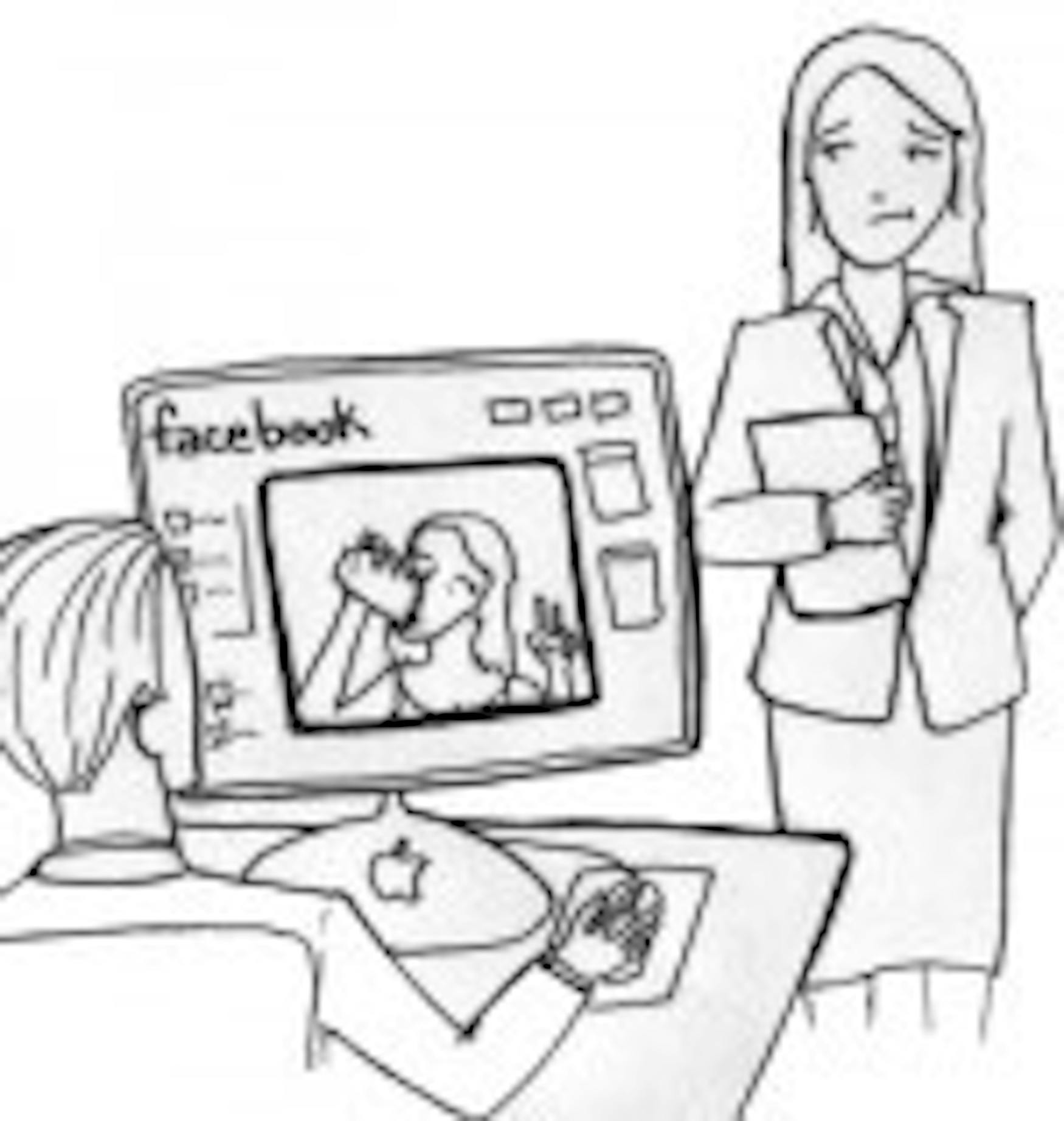Respect the privacy of Facebook users
Yesterday I had an interview for a prestigious internship at an organization I really admire. To say that getting this internship is important to me would be a minor understatement. Yet, instead of spending as much time as I could researching the organization and preparing for the interview, I spent hours scouring Facebook, removing anything that had the potential to even remotely hurt my chances.One might call me paranoid, but a February 2011 Chronicle of Higher Education article suggests otherwise. According to the article, a student at Millersville University of Pennsylvania was denied a teaching degree because administrators found a photo of her on Myspace that was captioned "drunken pirate." In the photo, the student was drinking out of a cup and wearing a costume hat.
This story is more than a little disturbing to me. I happen to have friends who take a lot of pictures, and most of them frequently upload what some universities or employers might consider "incriminating" photos of me to Facebook without my consent. Furthermore, I have no control over what my friends post on my Facebook page. It would be incredibly bad luck if someone posted a lewd comment on my Wall while I was sitting in an interview.
I do not disagree that the Internet is public domain and that it is up to the user's discretion to refrain from posting inappropriate material. But, on the other hand, when do employer and university searches of Facebook and other social networking sites stop being "innocent" snooping and start becoming invasions of privacy? My Facebook page is set to the highest levels of privacy that Facebook allows. People who are not "friends" with me cannot see any of the content of my page, and only a limited amount of people can find me in search results.
Yet, if any of my friends have less stringent privacy settings, people can still view photos and other content about me through their pages. Facebook's facial recognition technology also makes photos of me easily identifiable, even if I have "untagged" myself in them. Suddenly, Facebook has become an open window into our personal lives which we have no way of completely closing. Even if one were to delete their Facebook page, content about them could still circulate on their friends' pages for the entire world to see, all without their knowledge.
So yes, in many regards, keeping private content private is the responsibility of the social networking site's user. But unfortunately, due to the very invasive nature of these sites, there are many aspects of privacy that are simply out of our hands. We cannot control the way our friends use social networking sites, and we should not have to worry that their irresponsibility might negatively affect us.
So what happens when our friends' irresponsibility becomes an invasion of our privacy in its own right? Should colleges have a right to step in to protect us if that happens? After Rutgers University freshman Tyler Clementi committed suicide because a video of his sexual relations with another man was posted online, many argued that Rutgers should have been more vigilant about preventing that type of online bullying.
But the only person who should be assigned responsibility for Clementi's death is the individual who posted the video. If we grant colleges the right to view our private information online to prevent bullying-a term that is difficult to define in the first place-it will most certainly lead to more abuses of that right. Colleges will undoubtedly stumble across inappropriate material in their attempts to stop online bullying, and any punitive actions they take as a result will be an abuse of their power. Perhaps the best way to protect our online privacy and our vulnerability to online bullying is to make it illegal for users to post content about another individual on a social networking site without that person's consent.
Ultimately, employers and universities must be more respectful of our privacy. When employers and universities search Facebook, Myspace or any other social networking site for information about someone other than what that person has knowingly posted, it is a violation of that individual's privacy in the same way it is a violation of your privacy for someone to peer into your room through a crack you didn't know existed.
Unfortunately, because social networking sites are a relatively new phenomenon, the law does not yet define what privacy means in the context of the Internet. As a result, those who take extensive measures to keep their lives private online can still suffer from the actions of irresponsible friends. The law cannot protect us from these violations, but employers and universities should take some responsibility and respect our online privacy.



Please note All comments are eligible for publication in The Justice.